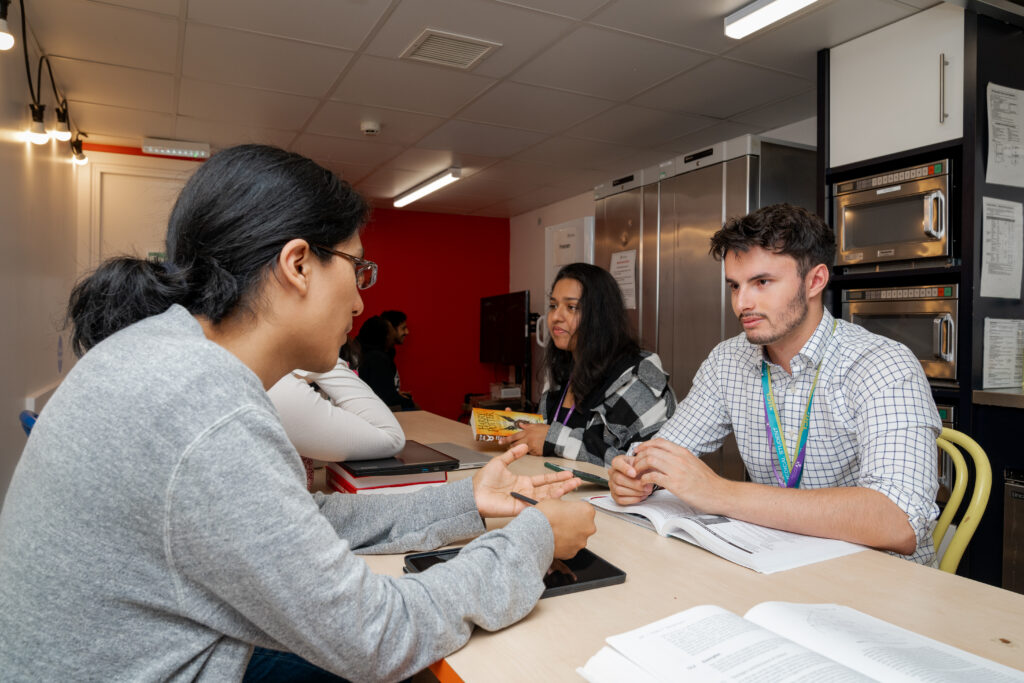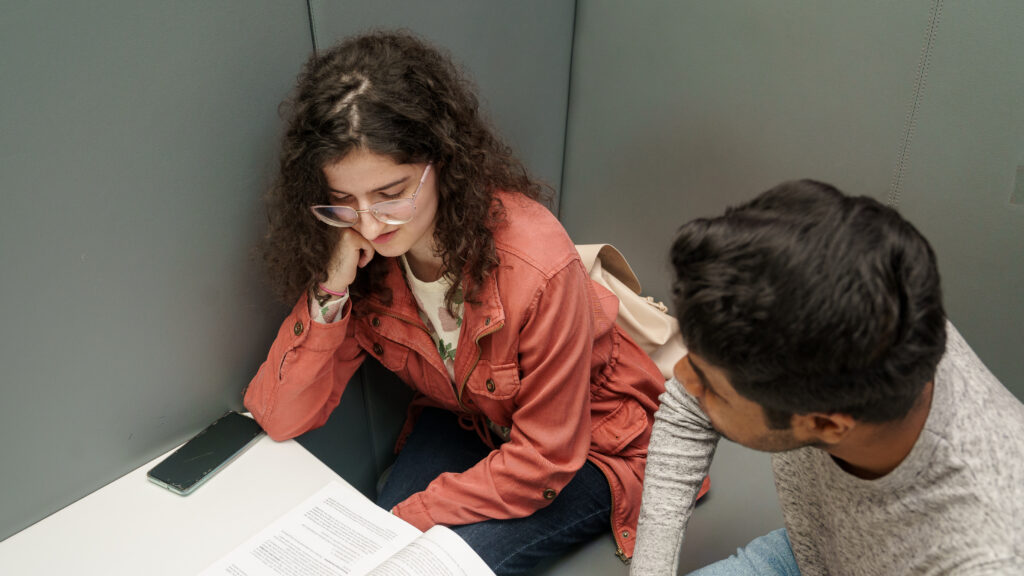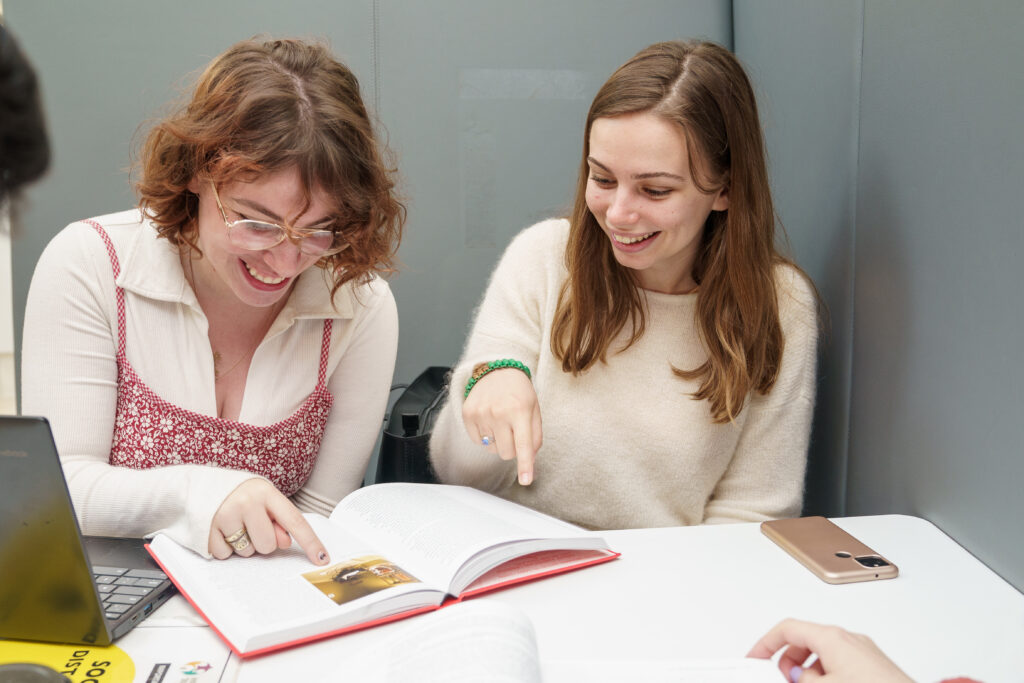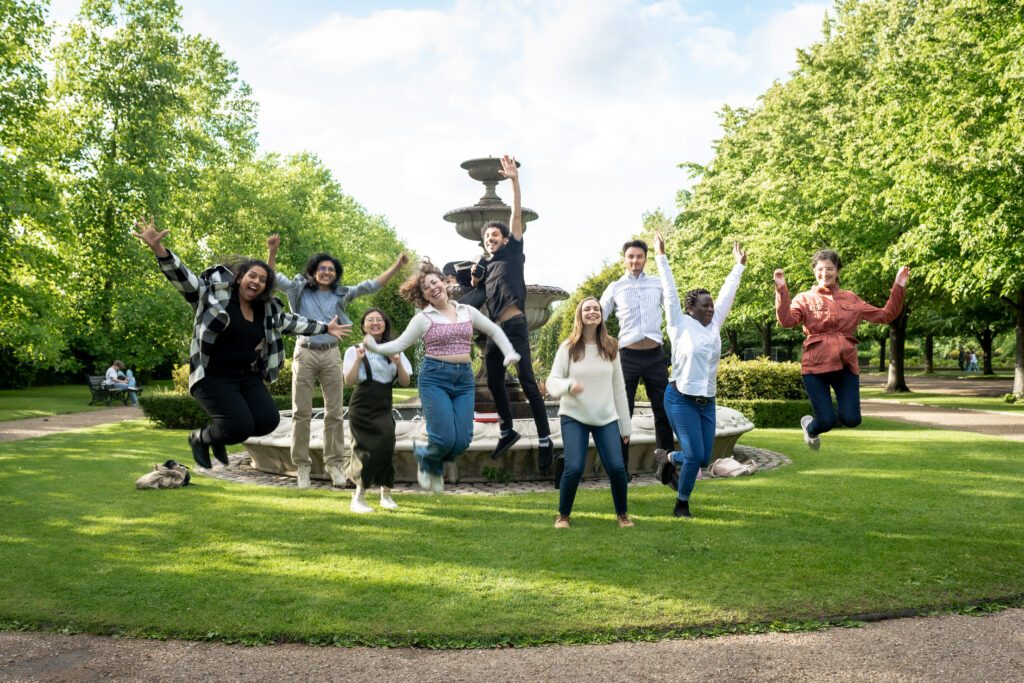Group work is a common aspect of university life, often dreaded by some and embraced by others. While collaborating with peers can be educational, it can also present some challenges. With the right approach and strategies, group work can be a rewarding experience that enhances learning and encourages valuable skills. Here are some best practices for handling group work effectively.
Communication is Key
When conducting group work at university you most likely would not know the people in your group. So, it’s important to establish clear channels of communication from the start. When you know who will be in your group you should exchange contact information and decide on preferred communication methods, whether it’s via email, messaging apps such as WhatsApp, or face-to-face meetings. Group work at university is definitely different to some groups you may have come across. Regularly check-in with your group members to stay updated on progress and address any concerns promptly.

Define Roles and Responsibilities
When you first form your group, you need to assign roles as everyone in the group will have different strengths and weaknesses. Assigning roles ensures that everyone contributes meaningfully to the project. Delegate tasks based on individual strengths and interests, whether it’s research, writing, editing, or presenting. Clearly define each member’s responsibilities to avoid misunderstandings and ensure accountability when things don’t go to plan.
Set Goals and Deadlines
Throughout university, you most likely only completed tasks on your own, but it’s important to work together to establish realistic goals and deadlines for different stages of the project. You should be able to break down the tasks into manageable chunks and create a timeline to track progress. As a result, you can set milestones that will help keep the group focused and motivated while also allowing time for revisions and adjustments.
Collaborate Effectively
Whilst working in groups at university some people would be more vocal or quieter than others. Creating a collaborative environment where every member feels valued and encouraged to contribute ideas. This will help encourage open discussion and brainstorming sessions to generate creative solutions. If you make people feel involved in the group, you will be able to work more efficiently and ultimately get tasks done quicker. Remember to be respectful of differing opinions and be willing to compromise for the greater good of the project.

Utilise Technology
Working with groups can be difficult if everyone can’t see everyone’s progress with the work so you can take advantage of technology tools and platforms to aid collaboration and organisation. For example, you can use shared documents and project management tools like Google Drive or Asana to coordinate tasks, share resources, and track progress in real time.
Establish Ground Rules
Before your group meets up to discuss tasks, make sure you agree on ground rules for group meetings and interactions to ensure efficiency and professionalism. You can discuss expectations regarding attendance, participation, meeting agendas, and decision-making processes. Making sure you have clear guidelines in place helps minimise conflicts and promotes a harmonious environment.
Manage Conflicts Constructively
Conflicts may arise during group work, however you should be able to address them constructively. Encourage open communication and active listening to understand each other’s perspectives. However, if conflicts are still arising, seek mediation from a neutral party or involve the lecturer or seminar teacher for assistance in resolving issues.

Provide Feedback and Evaluation
It’s a good idea to offer constructive feedback to your group members throughout the project, focusing on both strengths and areas for improvement. This will help both you and the group members know what they are doing well or things they need to work on. Try to be specific and supportive in your critiques and be open to receiving feedback in return. Reflect on the group’s performance after the project is completed to identify lessons learned and areas for growth.

Stay Organised and Flexible
In any piece of work you complete at university, being able to plan what you are doing before starting the task will help you understand the task better. As everyone in the group has different commitments and schedules you would have to maintain organisation throughout the project by keeping track of deadlines, tasks, and resources. At university changes may occur so you have to learn to be flexible and adaptable to changes or unexpected challenges that may arise along the way. Having a positive attitude and willingness to adapt will help the group overcome obstacles and achieve success.
Celebrate Achievements
Once you have completed the project you should acknowledge and celebrate the group’s achievements. Conducting group work with people you are not used to is a task in itself. Take pride in your collective efforts and the outcomes you’ve accomplished together. Being able to recognise each other’s contributions fosters a sense of partnership and strengthens bonds within the group.

Overall, mastering group work at university requires effective communication, collaboration, organization, and adaptability. By following these best practices and approaching group work with a positive mindset, you can navigate challenges successfully and maximize the learning opportunities that collaborative projects offer. You can embrace the experience, learn from each other, and strive for excellence as you work towards your shared goals.
Have you also read these articles?

